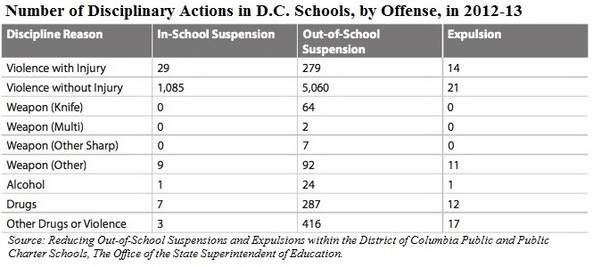Most important for schools is that these changes apply to people under the age of 18. Even though it is now a small offense in civil court, marijuana remains an exponentially larger crime in the school handbook. So what could D.C. schools do?

The good news is that public health campaigns for similar vices, such as tobacco and alcohol, have been effective at lowering overall teen consumption. Schools should provide more information to students and parents so that everyone is able to distinguish between drug use and drug abuse (and appropriate times of use). By providing more information and addressing marijuana use on campus constructively, (rather than relying on out-of-school suspensions as the go-to punishment), violators could receive more in-school, structured support to address and prevent drug abuse. These programs could also cultivate a better distinction between one-time offenders and repeat offenders, who may need more serious drug intervention or behavior intervention that the school may not be able to provide.
Schools do not have to condone teens smoking marijuana; but schools will have to work with, not against, the changes in marijuana policy to promote positive behaviors that do not alienate kids from campus.
Claire Bocage is a research assistant focusing on workplace psychology. Reach her via email.

 RSS Feed
RSS Feed